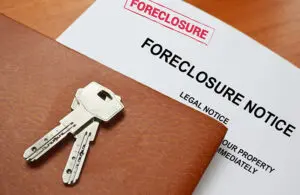It is not uncommon for homeowners to find a lien in HOA communities. Liens are a way for homeowners associations to enforce collection procedures and keep delinquency rates low. Both board members and homeowners should understand what liens are, how they work, and what can happen should liens be left unsatisfied.
What is a Lien in HOA?
An HOA lien is a legal claim that a homeowners association files on a home or unit when a homeowner defaults on their dues payments. Homeowners have a financial obligation to pay dues, which are used to cover operating expenses. When a homeowner fails to pay their dues, the HOA has multiple penalties available, including placing a lien on the home.
Also known as an HOA property lien or assessment lien, this legal claim gives the association financial security in collecting the outstanding debt. A lien in HOA makes it difficult for a homeowner to sell their home or refinance their mortgage without satisfying the lien first.
How Does an HOA Lien Work?
Homeowners associations rely on HOA dues or fees to cover operating and maintenance expenses. When homeowners stop paying their dues, they become delinquent. A high delinquency rate causes the association cash flow problems and also makes it harder to secure certain financing. Moreover, it forces the HOA to cover the shortfall using other means, such as special assessments or bank loans.
Although enforcement procedures usually begin with less extreme penalties, such as late charges and a temporary loss of privileges, an HOA can proceed with placing a lien on the home. To file a lien in HOA, the association must follow a specific process, which involves sending written notices and allowing the homeowner an opportunity to satisfy their debt first.
If the homeowner still fails to settle their unpaid dues, the HOA can then move on to placing a lien on the home. The HOA must file the lien with the county recorder’s office. Doing so officially records the HOA’s legal claim on the property and makes it a public record.
Can an HOA Put a Lien on My House?
Whether or not an association can place a lien on a home depends on state laws and its governing documents. Board members should consult with their legal counsel and confirm that the HOA has the authority to place a lien before proceeding with the action.
In general, homeowners associations can file a lien for unpaid HOA fees. Again, depending on state laws and the governing documents, some HOAs can’t file a lien consisting solely of outstanding fines for violations.
 Can an HOA Put a Lien on Your House in Texas?
Can an HOA Put a Lien on Your House in Texas?
In Texas, state laws don’t give HOAs the inherent right to place a lien on a home. This authority must be expressly stated within the association’s governing documents. The governing documents must also specify what types of debts may constitute a lien, such as unpaid dues or assessments, fines, interest, legal fees, and the like.
Does a Lien in a Homeowners Association Affect Credit Score?
Yes, an HOA lien can potentially affect a homeowner’s credit score. When an HOA files a lien against a home, it becomes a public record. Credit reporting agencies can sift through these records and use the lien as a factor in calculating credit scores. Homeowners can then expect their credit scores to lower due to the lien in the HOA, which would result in difficulty in securing loans or lines of credit.
Even if credit reporting bureaus don’t take the initiative to examine public records, other parties may get involved. The HOA itself or the collection agency it hires can report the lien to credit reporting agencies, leading to the same outcome.
Can Homeowners Association Take Your House?
Placing a lien on the home is not the end of the story. While liens make it harder to refinance or sell a home, these are not the worst consequences homeowners can face. A lien in an HOA can lead to foreclosure.
If a homeowner refuses to pay their delinquent dues, even with the lien, the HOA may proceed with foreclosure. Foreclosure will cause the homeowner to lose their home as the HOA will initiate a property sale. Proceeds from this sale will then be used to satisfy the association’s outstanding debt.
Most HOAs have the power to foreclose on a home. State laws and the association’s governing documents may say otherwise. Board members should check these first before taking action.
Understanding HOA Liens in Texas
In Texas, the law does not automatically give associations the authority to create an HOA lien on houses. An association’s governing documents must expressly indicate this authority, including what types of debts may constitute a lien.
In addition, there are specific notice requirements that HOAs must follow as per Section 209.0094 of the Texas Property Code. According to this law, an HOA must send the homeowner two notices before recording a lien with the county:
- First, the HOA must send notice via first-class mail or email.
- The HOA must then send the second notice via certified mail at least 30 days following the first notice.
Remember that an HOA may only file an assessment lien at least 90 days after sending the second notice. This allows the homeowner to settle their unpaid debts before the HOA files the lien.
Understanding HOA Foreclosures in Texas
Nonpayment of an HOA lien can lead to foreclosure in Texas. An HOA can potentially foreclose on a home in two ways: judicially and nonjudicially.
Judicial Foreclosure
 Homeowners associations with the authority to foreclose on a lien can use judicial foreclosure procedures. This process requires the HOA to file a lawsuit against the homeowner in a district court or a county court where the home is situated. The lawsuit will use the amount of money owed as the basis.
Homeowners associations with the authority to foreclose on a lien can use judicial foreclosure procedures. This process requires the HOA to file a lawsuit against the homeowner in a district court or a county court where the home is situated. The lawsuit will use the amount of money owed as the basis.
If the court rules in favor of the HOA, it will order a sheriff or constable to take hold of the property and sell it at a public auction. This is according to Rule 309 of the Texas Rules of Civil Procedure. The association can then take the debt the homeowner owes from the sale proceeds.
Nonjudicial Foreclosure
Some homeowners associations can foreclose on a home using nonjudicial procedures. To do so, the association’s governing documents must give the HOA a “power of sale” or the right to foreclose nonjudicially.
Also known as an expedited foreclosure, this method involves a representative or trustee selling the property at a public auction. The association is responsible for appointing this representative or trustee. The court does not give an order for the sale or supervise the sale process.
That said, the HOA must still acquire an expedited court order to proceed with the foreclosure unless the homeowner waives this requirement in writing.
With nonjudicial foreclosure, the HOA must notify the homeowner and an occupant of the property. This notice must state that the association has applied expedited foreclosure.
The homeowner has the right to file a response with the court to contest the application. They may also request a hearing. If the homeowner fails to file a response, the court will issue an order without a hearing.
Condo Association Foreclosure
Unlike other types of associations, Texas law gives all condo associations the authority to foreclose nonjudicially. This is according to Section 82.113 of the Texas Property Code.
Advice for Board Members and Homeowners
Filing a lien in HOA communities is not always easy. Board members must understand state laws and the requirements of their governing documents, so consulting a legal expert is always a good option. On the other hand, homeowners can easily avoid a lien by staying up-to-date with their dues.
Collecting unpaid dues can be tiresome and complex. Let Graham Management do it for you. We provide exceptional and reliable HOA financial management services to Houston communities. Call us today at (713) 334-8000, request a proposal, or contact us online to learn more!
RELATED ARTICLES:
- A Closer Look At The Texas Homeowner Protection Act
- Texas HOA Laws: Key Regulations Every BOD And Homeowner Should Know
- A Guide To HOA Special Assessment In Texas


 Can an HOA Put a Lien on Your House in Texas?
Can an HOA Put a Lien on Your House in Texas?